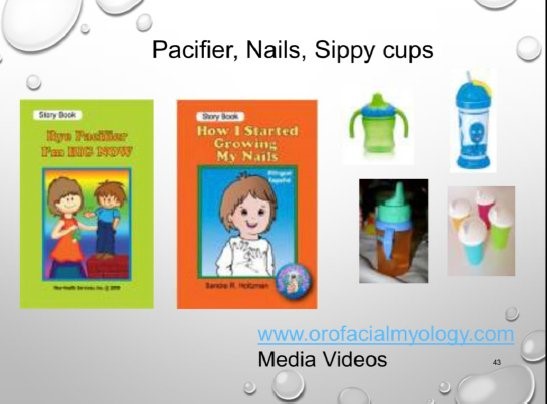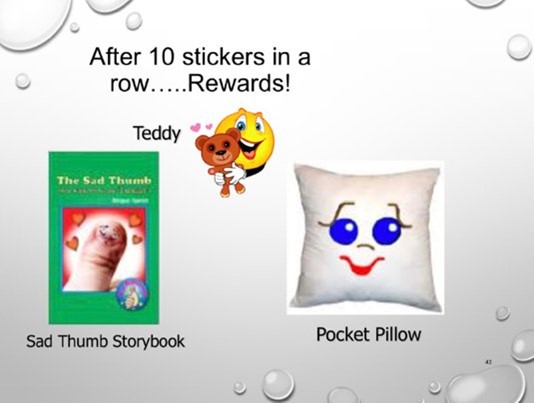(Content of this page used with permission of orofacialmyology.com.)
Like many parents, you may be concerned about your child’s thumb sucking, finger sucking, or pacifier use. You may wonder if it is harmful, at what age it should stop, or what could happen if your child does not stop.
Thumb sucking seems like an innocent habit. Infants and young children find it soothing to suck on a thumb, finger or pacifiers. It is quite normal, and many children stop sucking their thumbs or fingers between the ages of 2 and 5 years. But we now are more aware than ever of the damage this soothing habit causes. Not to mention, there are some children who will continue this habit until later years of life, causing not-so-pleasant dental problems — and their self-esteem may be greatly affected.
These dental problems include:
- Crooked or misaligned teeth
- Misaligned jaws and crossbite
- Narrowed upper jaws
- Speech defects
- Orofacial myofunctional disorders (OMDs) such as abnormal chewing and swallowing patterns (tongue thrust), and improper tongue position.
What do you offer to help with thumb sucking?
Studies show that these detrimental oral habits can damage the teeth and affect the social and overall physical health of the body. Research has also demonstrated that oral habits do not necessarily disappear with age as many have thought. With this in mind, our programs were conceived and created to fulfill the requests from therapists and parents to provide a kinder team approach to quitting these habits while the child is still young.
We have found the best approach is to get a kit created by Sandra Holtzman. With these kits, Arlington Smile Center will help you eliminate your child’s oral habit. These kits provide step-by-step instructions and offer information about handling special circumstances, how to deal with initial refusals, encouragement letters, and more. You will find in the kit important information for parents and a method that makes you the “helper” instead of a “foe.” Look for your child’s particular habit below and see how we can help your child get the help they need in a positive, rewarding way.
The Sad Thumb Who Wanted to Become Unplugged
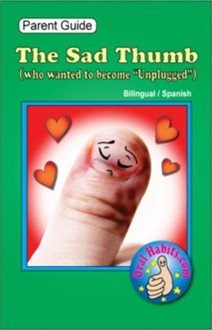
Bye Pacifier I’m BIG NOW
“Bye Pacifier I’m BIG NOW” is another book we stock. This book was created to help kids quit their pacifier in a kind way. The method makes us all the helper instead of the enemy. Nothing is negative, and your child slowly adapts to doing without the pacifier. The book comes with a guide for parents and a certificate to be given to the child at completion. You can choose either the girl’s version or the boy’s.
Growing the Nails
Nail biting may lead to dental damage, periodontal damage, gingival damage, orthodontic damage, entry of germs into the body, infections and pain, health and social consequences, and more.
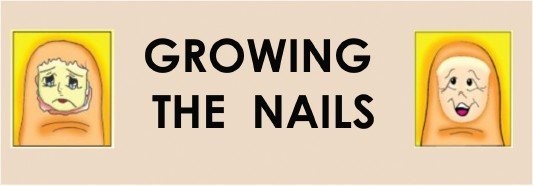
General Information About Nail Biting
Nail biting has been described as the habit of biting one’s fingernails or toenails during periods of nervousness, stress or boredom. Even in this less-serious situation, the habit can still cause physical damage and emotional or social distress. Since there is no way of predicting which child will develop accompanying symptoms, it is prudent to eliminate oral habits while the child is still young.
Growing the Nails was developed to respond to parents’ requests for a kinder method that doesn’t involve negative means to bring about a change in a child’s behavior. Growing the Nails does this by providing a child-parent “team approach.” Some studies make a distinction between mild forms and severe forms of nail biting. They take into consideration the intensity, frequency and duration of the habit. How powerfully is the nail being held between the teeth and what type of biting is occurring? How strongly is the child biting on the nail or sides of the fingers? How often is the child indulging in this noxious oral habit? How long has the habit been going on? How long does an average occurrence last?
Enamel Damage
- Tooth enamel damage and decay — A long-time habit of nail biting may have detrimental effects on the enamel of the front teeth, promoting tooth decay in these areas, according to the American Dental Association®.
Temporomandibular Disorder
- TMJ issues refer to jaw problems such as facial pain, or clicking or popping in the area of the temporomandibular joint (TMJ). Although there are many causes of TMJ pain and disorders, and it is sometimes difficult to find the cause(s), the Hughston Sports Medicine Foundation (www.hughston.com) reports that negative oral habits including nail biting are often the causative factor in younger people with symptoms. This is because nail biting and other noxious oral habits put the jaw in an abnormal position that results in wear and tear of the TMJ.
Germs, Infections, and Pain
- Paronychia (par a NICK eeya) is the term for inflammation and infection of the skin around the nail. Fingernail biting and thumb sucking are common causes of paronychia in children. It begins with a painful, red, warm, swollen area of skin around the nail that is often described as “boggy.” This can lead to a pus formation that will separate the skin and the nail.
- Germs — There is no doubt whatsoever that nail biting is a common means of transporting germs directly into the mouth from the fingers themselves and from the areas under the nails.
Social and Emotional Consequences
- Studies have found that interaction and participation in class is affected and limited by sucking behaviors.
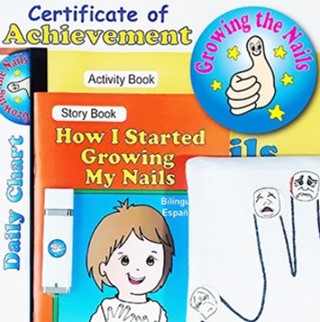
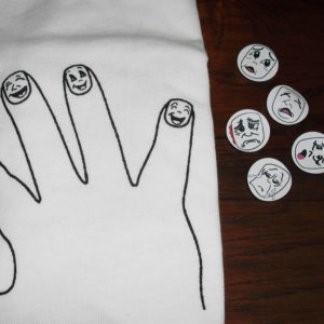
- Do you currently have or have had any previous oral habits?
- What time of day does this happen?
- Have you ever tried to quit? How? Why? When? Did it work?
- What triggers the habit?
- How does it make you feel?
- Why are you here?
- Where does it happen?
- When did it start? Did this habit replace another?
- Any family habits?
- What will this cost you in life if you do stop? What will you gain or lose?
- Who is around when you do this?
- Do you have any concomitant habits?
- When don’t you do it? What’s your typical day like with your oral habit?
- Do you hide it from anyone?
- Demonstrate how you nail bite/thumb suck?
- Do you want braces? If so, you need to stop oral habit.
It is important to understand the possible physical, social and emotional issues impacted by the oral habit so you can fully understand what can manifest from what would seem to be a harmless habit.
- Shame
- Spatial issues — low awareness
- Stress
- Bacteria — illness, viral infection, infections of nail beds
- Teeth damage or gum issues
- Sleep concerns
- Isolation
- Grossness — what do you do with those darn nail nubs? YUCK.
- Hand deformations, calluses, blisters, cuts
- Encourages mouth breathing
- Possible issues with speech or swallowing
- Possible TMD due to repetitive jaw movement
- Bullying and teasing that impacts self-esteem
- Impact on relationships
- Lose tactile ability in fingertips
Provide substitutes!
- Fidget ball
- Fidget spinner
- Spikey — sensory fidget ring
- Rizzle — from Shark Tank
- Worry beads
- Wrist bands
- Exercise
- Mannycure/Manicure — hygiene for nails and hands
- Replace with a new habit — ironing
- Change the environment — sit in a new place, turn off the TV
- Xylimelt — dental section at the drugstore, xylitol
- Visualization — believing your habit can be changed
- Gum — rest at roof of mouth
- Google docs — accountability for tracking, text or email for check-in
- Small steps — maybe one finger per day and check in to report
- Internal reward system — Starbucks? Treats?
- Tapping, hypnosis, mantra or meditation
- Pay attention to your current state — feelings
- Keep nail clippers around
- Mini-myo for anterior lingual stimulation
- Pause, sit on your hands
- Wear gloves
- Auditory or visual reminders — phone reminders, trackers, tally counters, sticky notes
- Encouraging quotes
- Dental — motivators
- Realistic goals
- Positive imagery — eliminate negative thoughts
- List pros and cons of habit — scratch back, pick up coins, etc.
